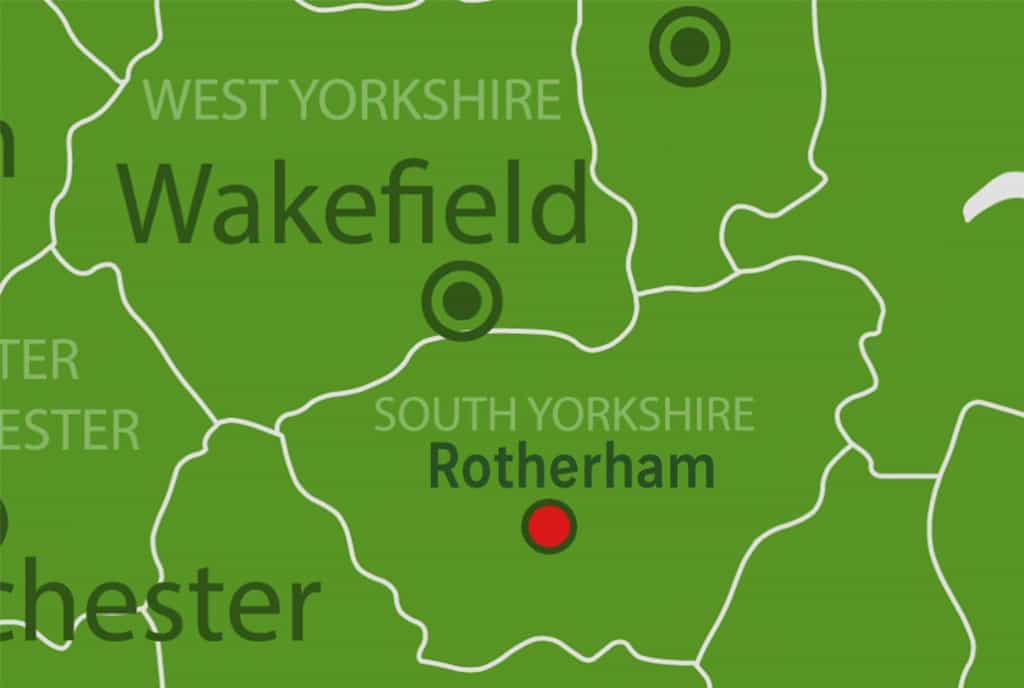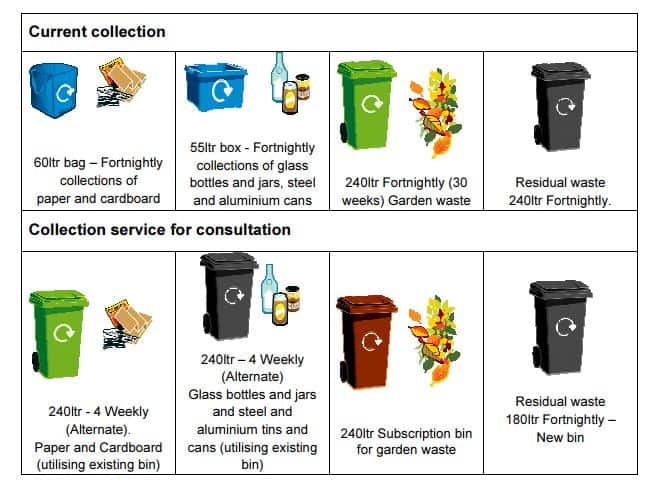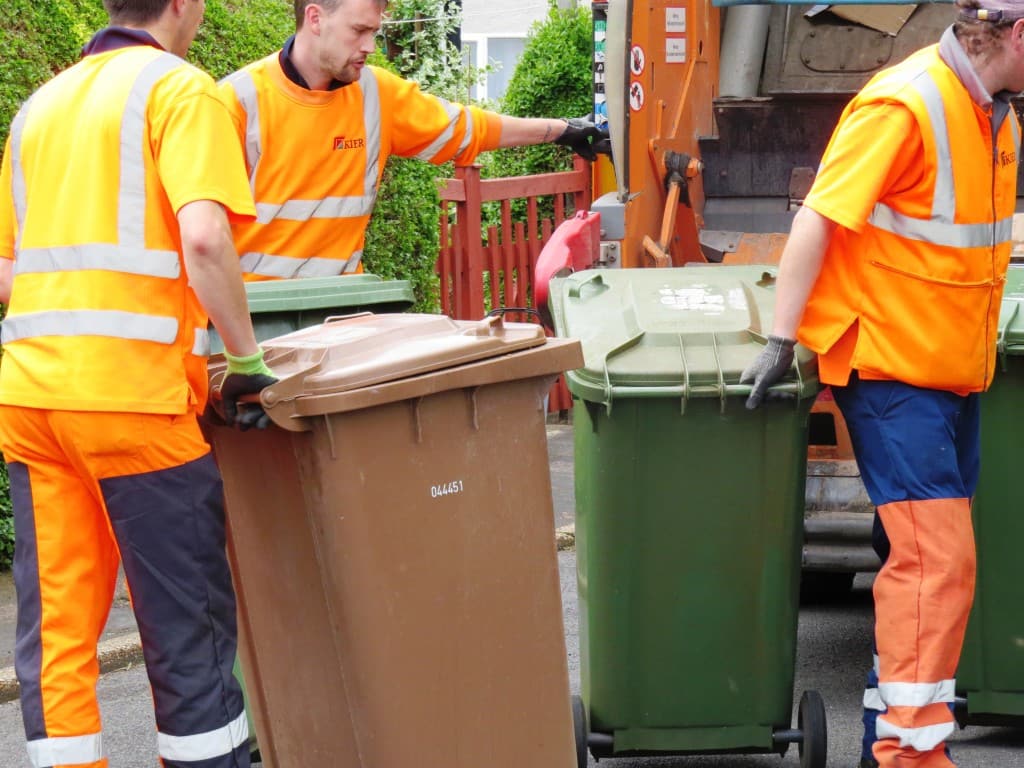The council said it wants to hear residents’ views about how it can make this happen.

The changes are being proposed as the council says local authorities across the country are under ‘increasing pressure’ to look at how they deliver waste services – to ensure value for money as well as making sure they achieve high levels of recycling.
Rotherham said it has been hit with budget cuts, which in the next two years will see it having to find £42m of savings.
Another reason for the changes is that the UK has a target to recycle at least 50% of household waste by 2020, the council explained. In 2016/17 the council recorded a recycling rate of 45.15% of all household waste collected.
Changes
The council’s current kerbside collection consists of a 240 litre residual waste wheeled bin, a 240 litre garden waste wheeled bin, a 60 litre sack for paper and cardboard and a 55 litre box for glass, cans foil and textiles.
Following the changes, residents would have a smaller 180 litre residual waste wheeled bin, a larger 240 litre wheeled bin for paper and cardboard and a much larger 240 litre wheeled bin for bottles and cans. Those who sign up to the service would also have a 240 litre garden waste wheeled bin.
Currently, the recycling sack, recycling box, garden waste bin and residual waste bin are all collected fortnightly.
The changes to the collection service would mean there would be four-weekly alternate collections for the green bin for paper and cardboard, and the black bin for aluminium tins and cans. Residual waste will continue to be collected fortnightly.
“Every household in the borough relies on bin collections, so we have not been rushing to alter them. However the financial challenge we face means that no change is now not an option.”
Emma Hoddinott
Rotherham
A new subscription collection for garden waste at around £40 per annum is to be considered. The garden waste bin would be collected fortnightly all year round rather than the current seven months of the year, the council said.
Service
The local authority explained that most plastics that can be are already extracted from ‘black bin’ general household waste to be recycled its waste treatment facility in Manvers. The council said it is not proposing to introduce any more collections at this time.
Rotherham council’s cabinet member for waste, roads and community safety Cllr Emma Hoddinott said: “These proposed changes should result in a more efficient, cost effective service and help to increase recycling rates. Residents have told us they want to recycle but feel the current blue box and bag scheme is not practical, bags get lost or blown away, and it also causes problems for our refuse collection teams.
“At the same time we know some residents would like green waste collections to take place all year round, whilst many others never use their green bin at all, so we need to try to strike the right balance.

“Every household in the borough relies on bin collections, so we have not been rushing to alter them. However the financial challenge we face means that no change is now not an option.”
BDR
Barnsley, Doncaster and Rotherham (BDR) Councils have jointly managed waste generated in the three boroughs for more than two decades.
According to Rotherham, the success of the BDR Waste Partnership helped secure PFI funding to build the waste treatment facility at Manvers. It treats 250,000 tonnes a year of leftover household waste from 340,000 households, extracting the remaining recyclable materials including plastics, glass and organic matter, and turning the rest into a valuable resource rather than sending it to landfill.
Non-recyclable materials are turned into fuel which produces low carbon electricity for the national grid.
More information on the proposed changes will be made available on the council’s website if the proposals are agreed by the council’s cabinet on the 13 November.











Subscribe for free